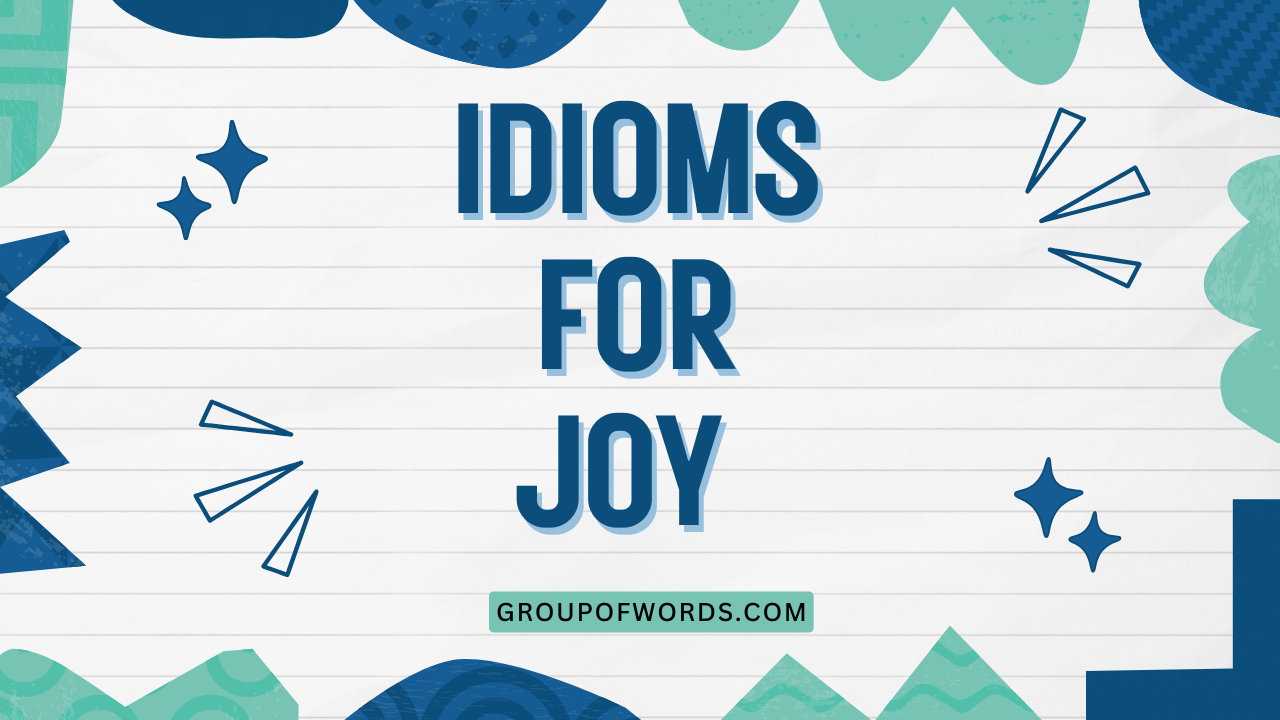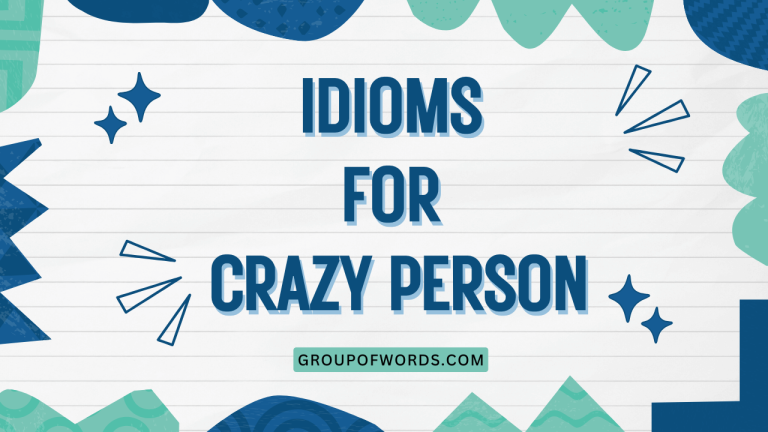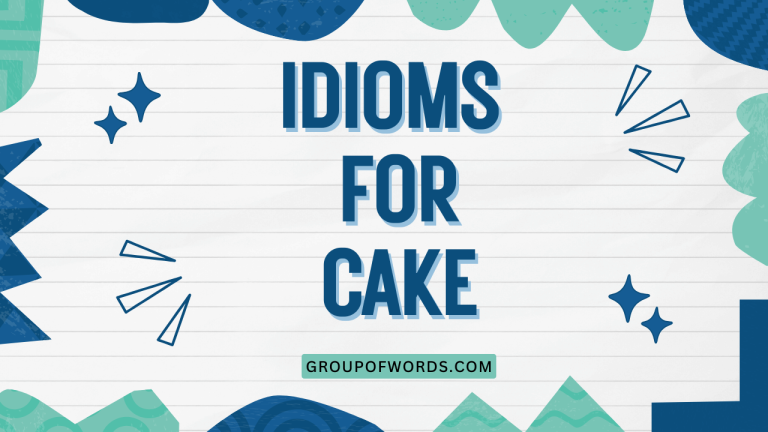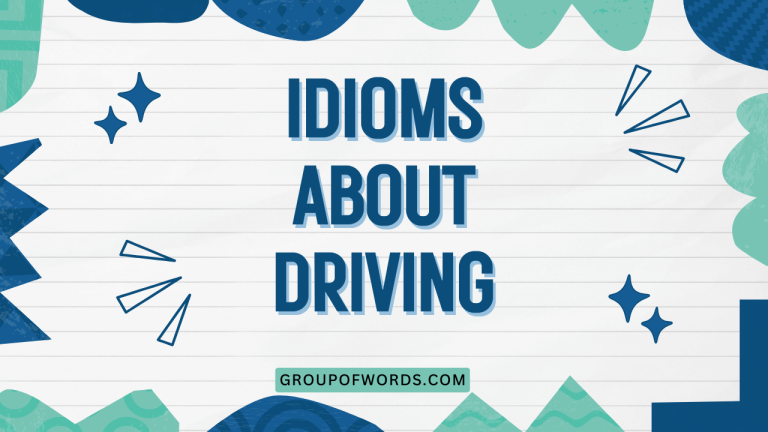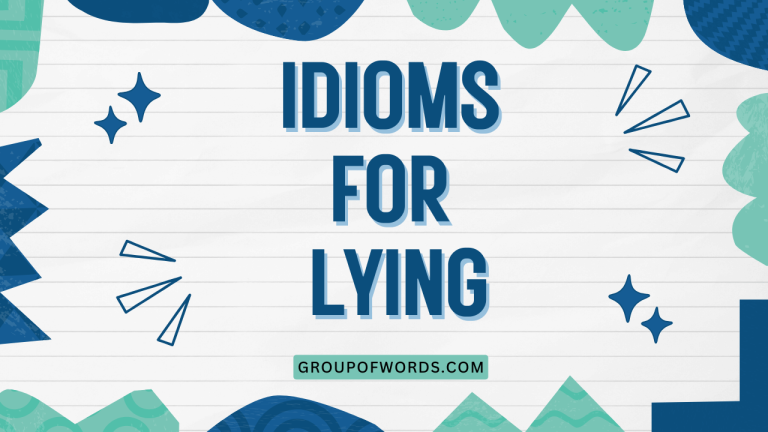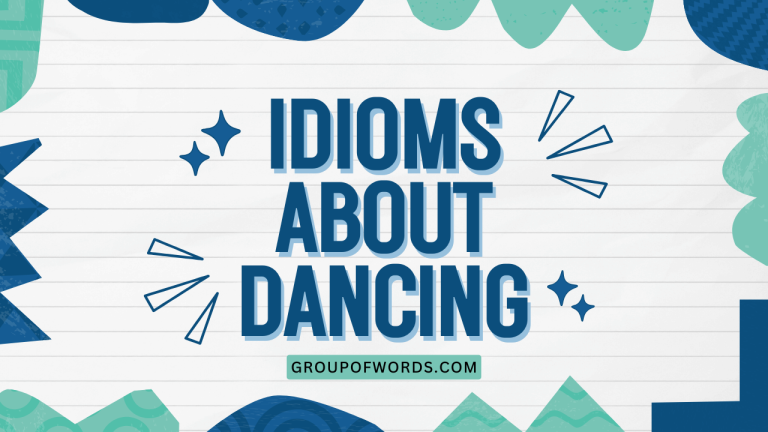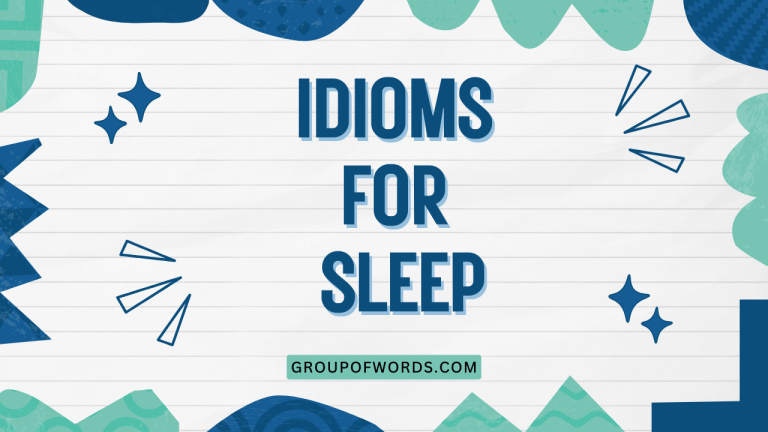Idioms for Joy: Expressing Happiness in English
Idioms add color and depth to the English language, allowing us to express emotions and ideas in creative and memorable ways. When it comes to happiness and joy, there’s a rich collection of idioms that can help you articulate your feelings more vividly.
Understanding and using these idioms not only enhances your communication skills but also provides a deeper insight into the cultural nuances of English. This article is designed for English language learners of all levels, from beginners to advanced speakers, who want to expand their vocabulary and express joy more effectively.
Table of Contents
- Introduction
- Definition of Idioms for Joy
- Structural Breakdown of Idioms
- Types and Categories of Joy Idioms
- Examples of Idioms for Joy
- Usage Rules for Joy Idioms
- Common Mistakes with Joy Idioms
- Practice Exercises
- Advanced Topics: Nuances and Connotations
- Frequently Asked Questions
- Conclusion
Introduction
Expressing joy is a fundamental part of human communication. While simple words like “happy” and “joyful” are effective, idioms provide a more colorful and nuanced way to convey the depth and intensity of our positive emotions.
This article delves into the world of idioms that describe joy, providing definitions, examples, usage rules, and practice exercises to help you master this aspect of the English language. Whether you’re preparing for an English exam, writing creatively, or simply aiming to improve your everyday conversations, this guide will equip you with the tools to express your happiness with confidence and flair.
By exploring these idioms, you will gain a richer understanding of English and be able to connect with native speakers on a deeper level.
Definition of Idioms for Joy
An idiom is a phrase or expression whose meaning cannot be understood from the ordinary meanings of the words it contains. It’s a figurative expression, meaning its intended meaning is different from the literal meaning of the words.
Idioms for joy are expressions that describe various states of happiness, excitement, contentment, and elation. These idioms add color and emphasis to your expression of positive emotions.
They are often culturally specific, reflecting the values and experiences of English-speaking societies. Understanding these idioms requires recognizing that their meaning is not simply the sum of their individual words but rather a unique, established expression.
The classification is based on the intensity and type of happiness conveyed.
Structural Breakdown of Idioms
Idioms, unlike regular phrases, have a fixed structure. Their components cannot be easily changed or rearranged without losing their idiomatic meaning.
Here’s a breakdown of the structural elements commonly found in idioms for joy:
- Verbs: Many idioms incorporate verbs to describe the action or state of being joyful. Examples include “jump for joy,” “be on cloud nine,” and “tickled pink.”
- Nouns: Nouns often represent the source or object of joy. For instance, “the apple of one’s eye” refers to someone or something that brings great joy.
- Adjectives: Adjectives are used to intensify the feeling of joy. Examples include “happy as a clam” and “over the moon.”
- Prepositions: Prepositions connect elements within the idiom, creating a specific relationship. Examples include “in high spirits” and “on top of the world.”
- Similes and Metaphors: Many idioms use similes (comparing two things using “like” or “as”) or metaphors (implied comparisons) to convey the feeling of joy. “Happy as a clam” is a simile, while “on cloud nine” is a metaphor.
The structure of an idiom is crucial to its meaning. Changing the words or their order can often render the idiom nonsensical or alter its intended message.
For example, saying “jump with joy” instead of “jump for joy” weakens the idiomatic expression.
Types and Categories of Joy Idioms
Idioms for joy can be categorized based on the specific type and intensity of happiness they convey. Here are some common categories:
Idioms for Overjoyed
These idioms express extreme happiness, often to the point of being overwhelmed with joy.
Idioms for Contentment
These idioms describe a sense of peaceful happiness and satisfaction.
Idioms for Excitement
These idioms convey a feeling of eager anticipation and enthusiasm.
Idioms for General Happiness
These idioms express a general feeling of well-being and cheerfulness.
Examples of Idioms for Joy
Here are some examples of idioms for joy, categorized by the type of happiness they express. Each idiom is accompanied by its meaning and example sentences.
Idioms for Overjoyed
These idioms signify feelings of extreme happiness and elation. They often convey a sense of being overwhelmed with joy.
The following table lists idioms that express being overjoyed, including their meanings and example sentences for context.
| Idiom | Meaning | Example Sentence |
|---|---|---|
| On cloud nine | Extremely happy; in a state of bliss. | After getting the promotion, she was on cloud nine for weeks. |
| Over the moon | Extremely pleased and happy. | They were over the moon when they found out they were expecting a baby. |
| In seventh heaven | In a state of perfect happiness; blissful. | He’s been in seventh heaven since he started dating Sarah. |
| Walking on air | Feeling extremely happy and elated. | She’s been walking on air ever since she got engaged. |
| Jump for joy | To be extremely happy and excited. | The children jumped for joy when they heard they were going to Disneyland. |
| Be tickled pink | To be very pleased and amused. | She was tickled pink when she received the award. |
| Float on air | To feel extremely happy and light. | Ever since he met her, he’s been floating on air. |
| Be on top of the world | Feeling extremely happy and successful. | After winning the championship, the team felt like they were on top of the world. |
| Have a whale of a time | To have a very enjoyable time. | We had a whale of a time at the beach yesterday. |
| Be in high spirits | To be cheerful and lively. | The team was in high spirits after their victory. |
| Be thrilled to bits | To be extremely pleased. | She was thrilled to bits with her birthday present. |
| Be as happy as Larry | To be very happy and content. | He’s as happy as Larry now that he’s retired. |
| Grin from ear to ear | To smile widely and broadly. | She was grinning from ear to ear when she saw her family. |
| Burst with joy | To be filled with so much happiness that it is almost overwhelming. | She burst with joy when she heard the news of her acceptance into medical school. |
| Be delirious with joy | To be so happy that one is almost out of one’s mind. | They were delirious with joy after winning the lottery. |
| Be beside oneself with joy | To be overcome with happiness, often to the point of being unable to think clearly. | She was beside herself with joy when her husband returned home safely. |
| Do a happy dance | To perform a dance of joy to express extreme happiness. | He did a happy dance when he found out he got the job. |
| Be in raptures | To be in a state of extreme joy and delight. | The audience was in raptures after the performance. |
| Be on a high | To experience a state of intense happiness and excitement. | She was on a high after completing the marathon. |
| Sing someone’s praises | To express great admiration and joy for someone’s achievements. | The teacher was singing her praises for her outstanding project. |
Idioms for Contentment
These idioms describe a state of peaceful happiness and satisfaction with one’s life or situation.
The following table provides idioms that reflect contentment, along with their meanings and illustrative example sentences.
| Idiom | Meaning | Example Sentence |
|---|---|---|
| Happy as a clam | Very happy and content. | He’s as happy as a clam now that he’s retired and living by the sea. |
| At peace with the world | Feeling calm and content with one’s life. | She’s finally at peace with the world after resolving her family issues. |
| In a good place | In a positive and content state of mind. | He’s in a good place now that he’s found a job he loves. |
| Content as can be | Completely satisfied and happy. | She’s content as can be with her simple life in the countryside. |
| Sit pretty | To be in a comfortable and advantageous position. | After investing wisely, they’re sitting pretty for retirement. |
| Be satisfied with one’s lot | To be content with one’s current circumstances. | He’s learned to be satisfied with his lot and appreciates what he has. |
| Take pleasure in the simple things | Find joy and contentment in the ordinary aspects of life. | She takes pleasure in the simple things, like a good cup of tea and a quiet afternoon. |
| Live the good life | To enjoy a comfortable and happy existence. | They’re living the good life with their successful business and beautiful home. |
| Be full of the joys of spring | To be cheerful, happy, and full of energy. | She’s been full of the joys of spring since she started her new hobby. |
| Have no complaints | To be content and without any grievances. | He has no complaints about his job; he enjoys it very much. |
| Be in clover | To be in a state of ease and prosperity. | Since winning the lottery, they’ve been in clover. |
| Be sitting on top of the world | To feel extremely content and successful. | After closing the deal, he felt like he was sitting on top of the world. |
| Be happy with one’s lot | Accept one’s current situation with contentment and without complaint. | Despite the challenges, she learned to be happy with her lot. |
| Lead a charmed life | To have a life that seems to be consistently fortunate and happy. | She leads a charmed life, always in the right place at the right time. |
| Have it made | To have achieved a comfortable and secure position in life. | With his successful career and loving family, he has it made. |
| Be content as a king | To be extremely happy and satisfied, as if one were a king. | Living in his cozy cabin, he was content as a king. |
| Rest on one’s laurels | To be satisfied with past achievements and not strive for further success. | After years of hard work, he decided to rest on his laurels and enjoy his retirement. |
| Take things as they come | To accept life’s events with equanimity and contentment. | She learned to take things as they come and not worry about the future. |
| Be in one’s element | To be in a situation where one feels completely comfortable and happy. | He’s in his element when he’s surrounded by books and research. |
| Bask in the sun | To enjoy a pleasant and relaxing situation. | After the long journey, they decided to bask in the sun on the beach. |
Idioms for Excitement
These idioms describe a feeling of eager anticipation, enthusiasm, and thrill.
The following table lists idioms that express excitement, along with their meanings and example sentences.
| Idiom | Meaning | Example Sentence |
|---|---|---|
| Eager beaver | A person who is extremely enthusiastic and hard-working. | She’s such an eager beaver; she always volunteers for extra tasks. |
| Full of beans | Full of energy and enthusiasm. | The children were full of beans after their nap. |
| On the edge of one’s seat | Very excited and tense while waiting to see what happens. | The audience was on the edge of their seats during the suspenseful scene. |
| Buzzing with excitement | Filled with a sense of anticipation and excitement. | The city was buzzing with excitement before the big game. |
| Can’t wait | To be very eager for something to happen. | I can’t wait for the summer vacation to begin. |
| Get a kick out of something | To find something very enjoyable and exciting. | He gets a kick out of playing video games with his friends. |
| Live for something | To find great joy and excitement in a particular activity or event. | She lives for her dance classes and performances. |
| Be psyched up | To be mentally and emotionally prepared and excited for something. | The team was psyched up for the championship game. |
| Have butterflies in one’s stomach | To feel nervous and excited before an event. | She had butterflies in her stomach before her presentation. |
| Be beside oneself with excitement | To be overwhelmed with excitement and anticipation. | He was beside himself with excitement when he received the acceptance letter. |
| Be jumping out of one’s skin | To be extremely excited or nervous. | The kids were jumping out of their skin waiting for the fireworks to start. |
| Be stoked | To be very excited and enthusiastic (informal). | He was stoked about the upcoming concert. |
| Be revved up | To be energized and excited, ready to go. | The crowd was revved up for the performance. |
| Be agog | To be very eager or curious. | The children were agog to see what Santa had brought. |
| Look forward to something | To anticipate something with pleasure. | We are really looking forward to our vacation. |
| Get a buzz out of something | To experience a thrill or excitement from something. | He gets a buzz out of riding his motorcycle. |
| Be itching for something | To be very eager to do or have something. | She’s itching for her next adventure. |
| Be on tenterhooks | To be in a state of suspense or agitation because of uncertainty. | They were on tenterhooks waiting for the exam results. |
| Be thrilled to the core | To be deeply and intensely excited. | She was thrilled to the core by the surprise party. |
| Be wired | To be in a state of nervous excitement (informal). | He was wired after drinking too much coffee. |
Idioms for General Happiness
These idioms express a general feeling of well-being, cheerfulness, and positivity.
The following table features idioms that describe general happiness, along with their meanings and example sentences.
| Idiom | Meaning | Example Sentence |
|---|---|---|
| Happy-go-lucky | Carefree and cheerful. | He’s a happy-go-lucky person who always sees the bright side of things. |
| Full of the joys of spring | Cheerful, happy, and full of energy. | She’s been full of the joys of spring since she started her new hobby. |
| In good spirits | In a cheerful mood. | The team was in good spirits despite the challenging circumstances. |
| Keep one’s chin up | To remain cheerful in a difficult situation. | Even though she lost her job, she’s keeping her chin up and looking for new opportunities. |
| Look on the bright side | To focus on the positive aspects of a situation. | Even though it rained, we tried to look on the bright side and enjoy the indoor activities. |
| Make someone’s day | To do something that makes someone very happy. | Your kind words really made my day. |
| Paint the town red | To go out and have a lively and enjoyable time. | After the graduation ceremony, they decided to paint the town red. |
| Have a blast | To have a great time. | We had a blast at the party last night. |
| Be walking on sunshine | To feel extremely happy and positive. | She’s been walking on sunshine since she got the good news. |
| Have a spring in one’s step | To walk with energy and enthusiasm, indicating happiness. | He had a spring in his step after his successful interview. |
| Be as pleased as punch | To be very pleased and satisfied. | He was as pleased as punch with his new car. |
| Be like a dog with two tails | To be extremely happy and excited. | The kids were like dogs with two tails when they saw the presents. |
| Sing in the shower | To be happy and carefree enough to sing while showering. | He always sings in the shower, which shows how happy he is. |
| Be tickled to death | To be extremely amused or pleased. | She was tickled to death by the comedian’s performance. |
| Be in a good mood | To be feeling cheerful and positive. | He’s been in a good mood all day. |
| Be on good terms with someone | To have a friendly and positive relationship with someone. | He’s on good terms with all his neighbors. |
| See the glass as half full | To have an optimistic and positive outlook on life. | She always sees the glass as half full, even in difficult times. |
| Wear a smile | To have a happy and pleasant expression on one’s face. | She always wears a smile, which makes her approachable. |
| Look at the world through rose-colored glasses | To have an overly optimistic and unrealistic view of the world. | She looks at the world through rose-colored glasses, which can sometimes be naive. |
| Wake up on the right side of the bed | To be in a good mood from the start of the day. | He must have woken up on the right side of the bed because he’s been so cheerful all morning. |
Usage Rules for Joy Idioms
Using idioms correctly requires attention to context, grammar, and cultural understanding. Here are some important usage rules to keep in mind:
- Context: Choose idioms that are appropriate for the situation and audience. Formal settings may require more restrained language, while informal settings allow for more colorful expressions.
- Grammar: Ensure that the idiom fits grammatically within the sentence. Pay attention to verb tenses, subject-verb agreement, and word order.
- Word Choice: Do not alter the words of an idiom. Changing even a single word can destroy its meaning.
- Cultural Sensitivity: Be aware that some idioms may not translate well across cultures or may have different connotations in different regions.
- Overuse: Avoid using too many idioms in a single conversation or piece of writing. Overuse can make your language sound unnatural and forced.
For example, while “on cloud nine” is a widely understood idiom for extreme happiness, it might not be suitable for a formal business presentation. In such a context, a more straightforward expression like “extremely pleased” would be more appropriate.
Common Mistakes with Joy Idioms
English language learners often make mistakes when using idioms. Being aware of these common errors can help you avoid them.
The following table highlights some common mistakes when using idioms for joy, along with corrections.
| Incorrect | Correct | Explanation |
|---|---|---|
| She was on cloud seven. | She was on cloud nine. | The correct number is “nine,” not “seven.” |
| He jumped with joy. | He jumped for joy. | The correct preposition is “for,” not “with.” |
| They are over the moon happy. | They are over the moon. | “Over the moon” already implies happiness, so adding “happy” is redundant. |
| She felt like on top of the world. | She felt like she was on top of the world. | The idiom requires the full phrase “she was on top of the world.” |
| I have a whale of time. | I had a whale of a time. | The correct phrase is “have a whale of a time,” and the tense must match the context. |
| He is happy as a clam in water. | He is happy as a clam. | The idiom “happy as a clam” doesn’t need the addition “in water.” |
| She is full with the joys of spring. | She is full of the joys of spring. | The correct preposition is “of,” not “with.” |
| They had butterflies on their stomach. | They had butterflies in their stomach. | The correct preposition is “in,” not “on.” |
| He looks the bright side. | He looks on the bright side. | The correct preposition is “on,” and the article “the” is required. |
| I made his day happy. | I made his day. | The word “happy” is redundant. The idiom “make someone’s day” already implies happiness. |
Practice Exercises
Test your understanding of idioms for joy with these practice exercises. Choose the correct idiom to complete each sentence.
Exercise 1: Fill in the Blanks
Choose the correct idiom from the list to complete each sentence. (Options: on cloud nine, over the moon, jump for joy, tickled pink, in seventh heaven)
| Question | Answer |
|---|---|
| 1. After receiving the acceptance letter, she was ______________. | on cloud nine |
| 2. The children ______________ when they heard they were going to the zoo. | jumped for joy |
| 3. He was ______________ when he received the award for his volunteer work. | tickled pink |
| 4. They were ______________ when they found out they were expecting twins. | over the moon |
| 5. Since starting her dream job, she’s been ______________. | in seventh heaven |
| 6. She was ___________ when she heard her favorite band was coming to town. | over the moon |
| 7. He __________ after winning the lottery. | jumped for joy |
| 8. She was ___________ after receiving the surprise gift. | tickled pink |
| 9. He has been ___________ since he met his soulmate. | in seventh heaven |
| 10. They were ___________ when their business became successful. | on cloud nine |
Exercise 2: Multiple Choice
Choose the best idiom to replace the underlined phrase in each sentence.
| Question | Options | Answer |
|---|---|---|
| 1. She was extremely happy about her new job. | a) in good spirits b) on cloud nine c) happy-go-lucky | b) on cloud nine |
| 2. He is very content with his simple life. | a) full of beans b) happy as a clam c) on tenterhooks | b) happy as a clam |
| 3. The kids were very excited to open their presents. | a) full of the joys of spring b) on the edge of their seats c) full of beans | c) full of beans |
| 4. They had a great time at the concert. | a) made someone’s day b) had a blast c) kept their chin up | b) had a blast |
| 5. She is a carefree and cheerful person. | a) happy-go-lucky b) in good spirits c) keeping her chin up | a) happy-go-lucky |
| 6. She was very pleased with the results. | a) tickled pink b) full of the joys of spring c) on the edge of her seat | a) tickled pink |
| 7. He felt like he was very successful after completing the project. | a) sitting pretty b) on top of the world c) in clover | b) on top of the world |
| 8. They are eagerly anticipating their vacation. | a) looking forward to b) full of beans c) in good spirits | a) looking forward to |
| 9. She made me very happy with her kind gesture. | a) kept my chin up b) made my day c) had a blast | b) made my day |
| 10. He is always cheerful, even in difficult times. | a) keeping his chin up b) happy-go-lucky c) in good spirits | a) keeping his chin up |
Exercise 3: Sentence Completion
Complete each sentence using an appropriate idiom for joy.
| Question | Answer |
|---|---|
| 1. After their team won the championship, they felt like they were ______________. | on top of the world |
| 2. She’s been ______________ since she started dating him. | walking on air |
| 3. Despite the challenges, he tries to ______________ and stay positive. | look on the bright side |
| 4. We ______________ at the amusement park all day. | had a blast |
| 5. He was ______________ waiting for the results of his medical tests. | on tenterhooks |
| 6. She’s been ______________ ever since she got the good news. | walking on sunshine |
| 7. When they announced her name as the winner, she ______________. | jumped for joy |
| 8. She’s ______________ with her life in the countryside. | content as can be |
| 9. He was ______________ by the surprise party his friends threw for him. | tickled pink |
| 10. They are ______________ their upcoming trip to Europe. | looking forward to |
Advanced Topics: Nuances and Connotations
At an advanced level, understanding the nuances and connotations of idioms is crucial. Some idioms may have subtle differences in meaning or may be more appropriate in certain contexts than others.
For instance, “on cloud nine” and “in seventh heaven” both express extreme happiness, but “in seventh heaven” might imply a more spiritual or profound sense of joy.
Additionally, some idioms may carry cultural baggage or historical references that are not immediately apparent. Understanding these underlying meanings can enrich your appreciation of the English language and allow you to use idioms with greater precision and sensitivity.
For example, the idiom “happy as a clam” refers to clams at high tide, when they are safe from predators and can feed freely, but this historical context might not be obvious to all learners.
Frequently Asked Questions
Here are some frequently asked questions about idioms for joy:
- What is the difference between an idiom and a proverb?
An idiom is a phrase whose meaning is different from the literal meanings of its words, while a proverb is a short, well-known saying that expresses a general truth or piece of advice. Idioms focus on figurative language, whereas proverbs offer wisdom or insight.
- How can I learn new idioms effectively?
Read widely, listen to native speakers, and pay attention to the context in which idioms are used. Keep a notebook of new idioms and practice using them in your own writing and conversations. Use flashcards or language learning apps to reinforce your knowledge.
- Are idioms the same in all English-speaking countries?
No, idioms can vary significantly between different English-speaking countries and regions. Some idioms are specific to British English, American English, Australian English, etc. Be aware of these regional variations and use idioms that are appropriate for your audience.
- Is it okay to use idioms in formal writing?
It depends on the context and the specific idiom. Generally, it’s best to avoid overly colloquial or informal idioms in formal writing. Opt for more neutral and straightforward language when in doubt.
- How can I tell if an expression is an idiom?
If the meaning of an expression is not immediately clear from the meanings of its individual words, it is likely an idiom. Also, idioms often have a fixed structure and cannot be easily altered without losing their meaning.
- Why are idioms so important in English?
Idioms add color, nuance, and expressiveness to the English language. They allow you to communicate more vividly and connect with native speakers on a deeper level. Understanding idioms is also essential for comprehending spoken and written English.
- What should I do if I don’t understand an idiom?
Ask for clarification! Don’t be afraid to ask the speaker to explain the meaning of the
idiom. Look it up in a dictionary or online resource. The more you encounter idioms in context, the easier it will become to understand them.
Conclusion
Mastering idioms for joy is a rewarding journey that enriches your understanding of the English language and enhances your ability to express emotions vividly. By learning the definitions, usage rules, and nuances of these idioms, you can communicate more effectively and connect with native speakers on a deeper level.
Whether you’re “on cloud nine,” “happy as a clam,” or simply “in good spirits,” using idioms allows you to convey the full spectrum of happiness with creativity and flair. Continue practicing and exploring new idioms to further expand your vocabulary and express your joy with confidence.
